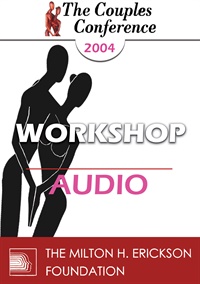
- Average Rating:
- Not yet rated
- Topic Areas:
- Workshops | Attachment | Couples Therapy | Divorce | Marriage | Neuroscience
- Categories:
- Couples Conference | Couples Conference 2004
- Faculty:
- Helen E. Fisher, PhD
- Duration:
- 1:51:10
- Format:
- Audio Only
- Original Program Date:
- Mar 28, 2004
- Short Description:
- This workshop discusses the brain circuitry of the three primary mating emotions: lust, attraction and attachment. It traces the evolution of these emotion systems and illustrates how their neural circuitry contributes to contemporary patterns of marital harmony and discord including adultery; divorce; stalking behavior; clinical depression due to rejection in love; and other issues brought to contemporary couples therapy.
- Price:
- $15.00 - Base Price
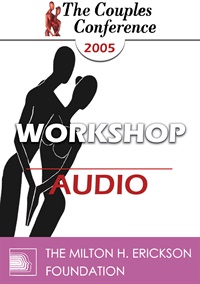
- Average Rating:
- Not yet rated
- Topic Areas:
- Workshops | Couples Therapy | Neurobiology | Relationships | Neuroscience | Intimacy
- Categories:
- Couples Conference | Couples Conference 2005
- Faculty:
- Pat Love, EdD
- Duration:
- 1:40:11
- Format:
- Audio Only
- Original Program Date:
- Mar 04, 2005
- Short Description:
- The new brain science explains many of the mysteries of love and offers new hopes for troubled relationships. Neuro-scientific approaches are used to address the most common reason cited for divorce, i.e. growing apart. Three clinical techniques will be presented which are specifically designed to create an intimate bond between two people and pave the way to grow together instead of apart. Lecture, video, handouts and experiential exercises will be used.
- Price:
- $15.00 - Base Price
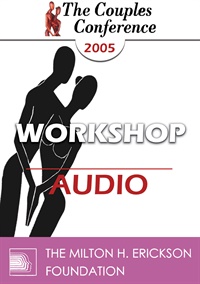
- Average Rating:
- Not yet rated
- Topic Areas:
- Workshops | Couples Therapy | Neurobiology | Love | Neuroscience
- Categories:
- Couples Conference | Couples Conference 2005
- Faculty:
- Helen E. Fisher, PhD
- Duration:
- 1:38:06
- Format:
- Audio Only
- Original Program Date:
- Mar 05, 2005
- Short Description:
- Anthropologist Helen Fisher discusses the brain networks associated with romantic love to explain frustration attraction, abandonment, rage, the despair response, love, addiction, stalking, love, suicide and other phenomena associated with romantic rejection. She concludes that long term use of serotonin-enhancing antidepressants can jeopardize romantic love and attachment to a mate.
- Price:
- $15.00 - Base Price
Tags: Couples Therapy Love Neuroscience

- Average Rating:
- Not yet rated
- Topic Areas:
- Dialogues | Couples Therapy | Neuroscience
- Categories:
- Couples Conference | Couples Conference 2008
- Faculty:
- Louis Cozolino, PhD | Peter Pearson, PhD | Stan Tatkin, PsyD, MFT
- Duration:
- 57:12
- Format:
- Audio Only
- Original Program Date:
- Apr 27, 2008
- Short Description:
- CC08 Dialogue 03 - Key Concepts from Neuroscience That Influence Your Couples Work - Louis Cozolino, PhD, Peter Pearson, PhD, Stan Tatkin, PsyD
- Price:
- $15.00 - Base Price
Tags: Couples Therapy Neuroscience

- Average Rating:
- Not yet rated
- Topic Areas:
- Keynotes | Couples Therapy | Mindfulness | Neuroscience | Attunement
- Categories:
- Couples Conference | Couples Conference 2008
- Faculty:
- Daniel Siegel, MD
- Duration:
- 2:07:07
- Format:
- Audio Only
- Original Program Date:
- Apr 25, 2008
- Short Description:
- Mindful awareness has been scientifically proven to promote social, emotional and physical well-being, and is an effective part of treatment to prevent relapse of drug addiction and chronic depression. Mindfulness also enhances empathy, and in that way may promote healthy interpersonal relationships. This ancient practice of being fully aware in the present moment, without grasping onto judgments, has been found in cultures around the world. At the heart of this proposal is that the state of mindful awareness harnesses specific social and emotional circuits in the brain. The development of these “resonance circuits” creates an integrated brain state that creates the benefits of improved immune and cardiac function, enhanced empathy and self-understanding, and a deeper connection to oneself and others.
- Price:
- $15.00 - Base Price
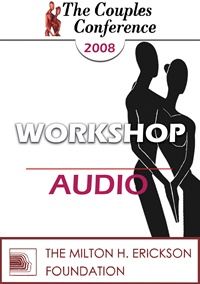
- Average Rating:
- Not yet rated
- Topic Areas:
- Workshops | Trauma | Relationships | Couples Therapy | Neuroscience | Stress
- Categories:
- Couples Conference | Couples Conference 2008
- Faculty:
- Bessel van der Kolk, MD
- Duration:
- 1:38:39
- Format:
- Audio Only
- Original Program Date:
- Apr 25, 2008
- Short Description:
- The majority of people who seek psychiatric care have histories of trauma, chaos or neglect. Advances in the neurosciences, attachment research and in information processing show how brain function is shaped by experience, and that life itself can continually transform perception and biology. Overwhelming experiences alter the capacity for selfregulation and memory processing due to changes in sub-cortical, i.e., “unconscious” levels of the brain.
- Price:
- $15.00 - Base Price
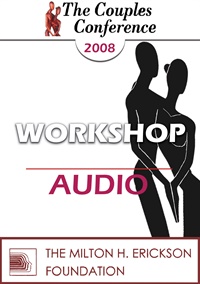
- Average Rating:
- Not yet rated
- Topic Areas:
- Workshops | Couples Therapy | Neuroscience | Intimacy | Attachment | Neurobiology
- Categories:
- Couples Conference | Couples Conference 2008
- Faculty:
- Stan Tatkin, PsyD, MFT
- Duration:
- 2:08:28
- Format:
- Audio Only
- Original Program Date:
- Apr 27, 2008
- Short Description:
- Is our brain built for love or war, connection or self-preservation? The attachment drive for a secure base involves neurological and neuro-endocrine systems and subsystems that determine such things as proximity seeking and contact maintenance. Couples most commonly enter therapy due to repeated, anticipated, and intense periods of mutual dysregulation whereby attachment injuries and adaptations become reanimated. In order to make the most of attachment theory, the psychotherapist must incorporate a working knowledge of the neurobiological processes that underlie all primary attachment relationships.
- Price:
- $15.00 - Base Price

- Average Rating:
- Not yet rated
- Topic Areas:
- Workshops | Couples Therapy | Neuroscience | Intimacy
- Categories:
- Couples Conference | Couples Conference 2008
- Faculty:
- Louis Cozolino, PhD
- Duration:
- 2:23:03
- Format:
- Audio Only
- Original Program Date:
- Apr 27, 2008
- Short Description:
- In the course of human evolution, our brains have been shaped by countless adaptational challenges resulting in an organ functioning simultaneously in the conscious present and our primitive and hidden past. This presentation will explore aspects of the human brain which make sustained intimate relationships both possible and problematic.
- Price:
- $15.00 - Base Price
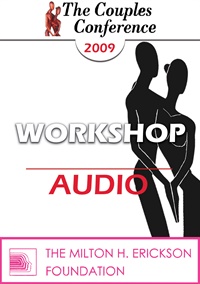
- Average Rating:
- Not yet rated
- Topic Areas:
- Workshops | Couples Therapy | Neuroscience | Research
- Categories:
- Couples Conference | Couples Conference 2009
- Faculty:
- Pat Love, EdD
- Duration:
- 1:22:34
- Format:
- Audio Only
- Original Program Date:
- May 01, 2009
- Short Description:
- Current research from the field of neurophysiology confirms the fact that permanent change involves treating the system as well as the symptom. Come learn a simple, yet impactful way to help couples break old patterns by forming new ones. Lecture, demonstration, video and experiential exercise will be used.
- Price:
- $15.00 - Base Price
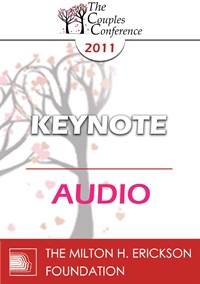
- Average Rating:
- Not yet rated
- Topic Areas:
- Keynotes | Love | Neuroscience | Couples Therapy | Relationships
- Categories:
- Couples Conference | Couples Conference 2011
- Faculty:
- Daniel Amen, MD
- Duration:
- 2:12:44
- Format:
- Audio Only
- Original Program Date:
- Apr 01, 2011
- Short Description:
- The brain is involved with everything we do, especially our relationships. In this fun presentation Dr. Amen will discuss different areas of the brain involved in relationships, what they do, what happens when things go wrong and how to improve them. You are a better marital therapist when you understand the brain.
- Price:
- $15.00 - Base Price
Please wait ...

